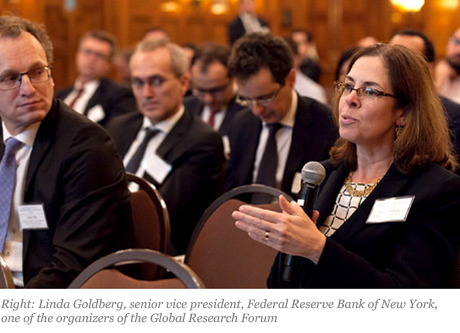Will Capital Flows through Global Banks Support Economic Recovery?
Liberty Street Economics authors ask whether, based on precedent, global banks are likely to provide additional support to the economic recovery following COVID-19 in the locations they serve.
At the N.Y. Fed: Capital Flows, Policy Dilemmas, and the Future of Global Financial Integration

The New York Fed recently hosted the third bi-annual Global Research Forum on International Macroeconomics and Finance, an event organized in conjunction with the European Central Bank (ECB) and the Federal Reserve Board. Bringing together a diverse group of academics, policymakers, and market participants, the two-day conference (November 17-18) was aimed at promoting discussion of frontier research on empirical and theoretical issues in international finance, banking, and open-economy macroeconomics. Understanding the drivers and implications of international capital flows was a major area of focus, along with the policy challenges posed by global financial integration.











 RSS Feed
RSS Feed Follow Liberty Street Economics
Follow Liberty Street Economics